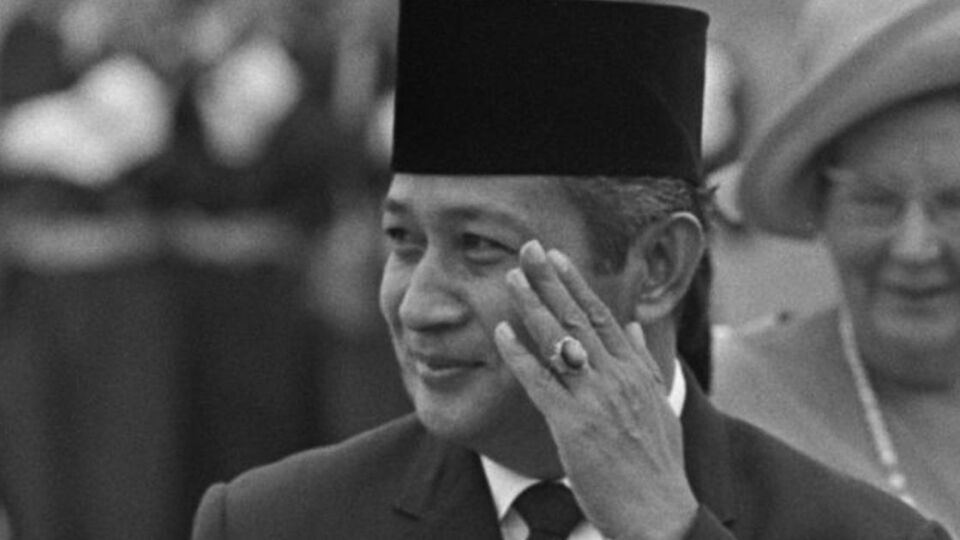The Prabowo government to rewrite history books
A process of revision of school textbooks has been announced to mark the eightieth anniversary of independence in August. Critics slam the initiative as an attempt to rehabilitate the late military dictator Suharto by omitting some controversial episodes involving the current president. The impact on the new generations is particularly worrisome since they have no direct memory of the regime's crimes and because of this, they tend to support Prabowo.
Jakarta (AsiaNews/Agencies) – Indonesia is about to embark on an ambitious project to revise its history books, starting 17 August 2025, the eightieth anniversary of the country’s independence.
The initiative, promoted by Culture Minister Fadli Zon, involves the publication of ten volumes that will cover the history of the country from prehistory to the contemporary era. The declared goal is to ensure that “History will be written correctly” with the Indonesian identity at the centre.
According to critics, this is a political operation aimed at legitimising current President Prabowo Subianto, in office since 20 October 2024, and cleanse the historical legacy of his late father-in-law, General Suharto, who took over in a coup d'état in 1965 and remained in power until 1998.
The two share not only family ties, but also various aspects of their political vision, as well as a past marked by serious allegations of human rights violations.
The Indonesian case is part of a recent process of historical revisionism taking place in several Asian countries, such as India, China and Pakistan.
Critics of Prabowo’s new administration are concerned about the rewriting of Indonesian history, especially the omission of some of its most controversial episodes, like the massacres of 1965, the repression of Papuan separatists in 1966, and the kidnappings of activists in 1998.
These issues are still politically hot since they involve the incumbent president, who backs the revisionist project.
Prabowo’s involvement in the first episode is indirect, as heir and accomplice of the system that legitimised and made the massacre possible. In the other two, his involvement is direct.
A former Dutch colony, Indonesia officially became independent on 17 August 1945. Nationalist leader Sokarno became president and remained in office until 1967, when he was ousted by a coup d'état led by General Suharto.
In those early years, despite a first purge in 1948, the Indonesian Communist Party (PKI), the largest in the world after the Chinese and Russian ones, became deeply rooted in society. President Sokarno did not stand in its way, because he and the Communists shared a moderate nationalist and anti-imperialist ideology.
However, a mysterious failed coup d'état, which took place on the night between 30 September and 1 October 1965, marked the end of the Party. Suharto, in fact, after taking control of the army, started a brutal crackdown that led to the death of at least half a million people suspected of communist sympathies.
What really happened is still a matter of debate. Some historians speculate that the even t was the result of external manipulation to justify Suharto's rise through the repression of the insurgents.
After the alleged communist insurrection, Suharto extended the clampdown to all forms of dissent, even in the remotest corners of the country.
In 1966, Prabowo led a punitive expedition against civilians suspected of supporting separatists in the West Papua region, where movements to resist forced annexation by Indonesia were active.
In 1998, when the country was plunging into chaos after the collapse of the Suharto regime, Prabowo was involved in the kidnapping and torture of students and pro-democracy activists. For this reason, he was eventually dismissed from the army and banned from entering the United States.
Already during Suharto’s 32-year “New Order”, Indonesia's official history was adapted to boost central authority and promote a unified vision of the nation. This narrative was partially corrected in 2012, but without really resolving delicate historical questions.
This explains the concern about the impact that the latest revisionism could have on the new generations, devoid of direct memory of the crimes of the Suharto regime.
It was precisely young people, in fact, who formed the bulk of the voters who enabled Prabowo to win in 2024, a generation that did not directly experience the years of Suharto's military regime.
Supporters of Prabowo, who has denied any responsibility for human rights violations, believe that such initiatives guarantee the efficiency of the government.
However, the growing role of the military in government has drawn criticism from a former president, Susilo Bambang Yudhoyono, who a few months ago warned: “Don’t let ABRI,[*] now TNI/Polri,[†] repeat the past that has been corrected by history."
[*] ABRI, Armed Forces of the Republic of Indonesia between 1962 and 1999.
[†] TNI, Indonesian National Armed Forces; Polri, Indonesian National Police.
21/09/2022
12/08/2023 17:15







.png)










